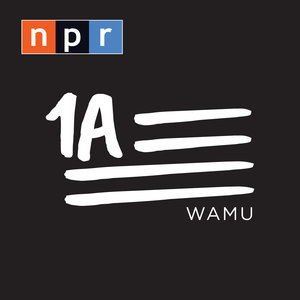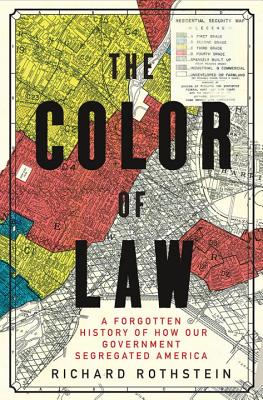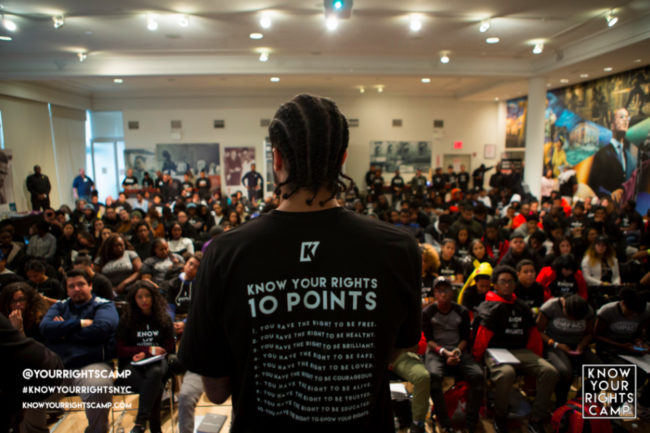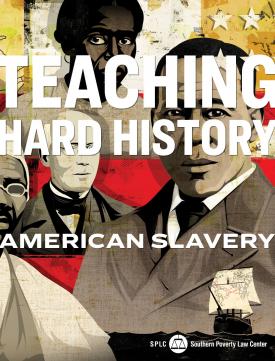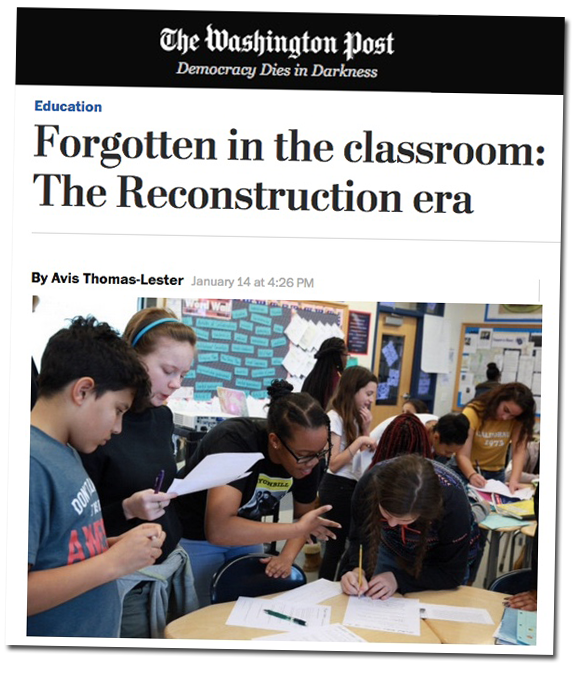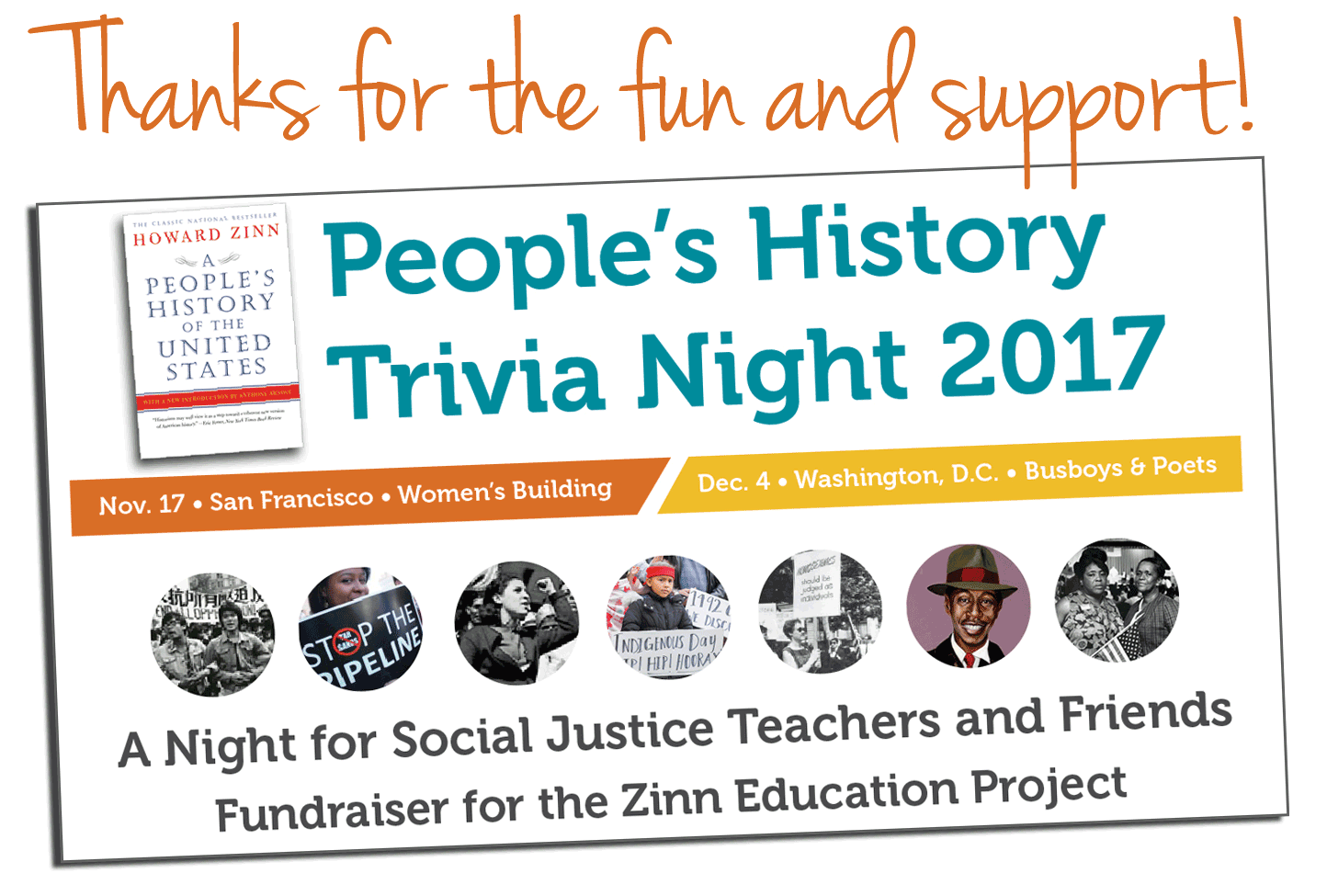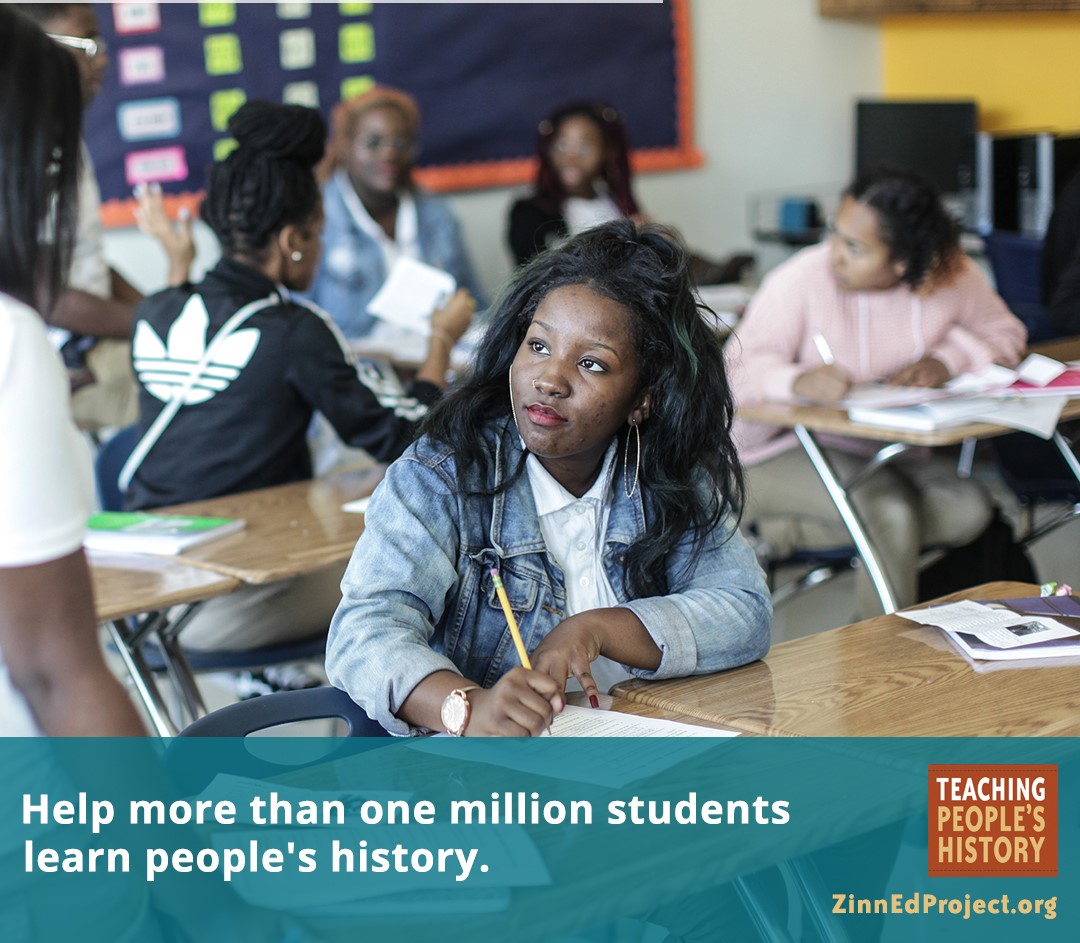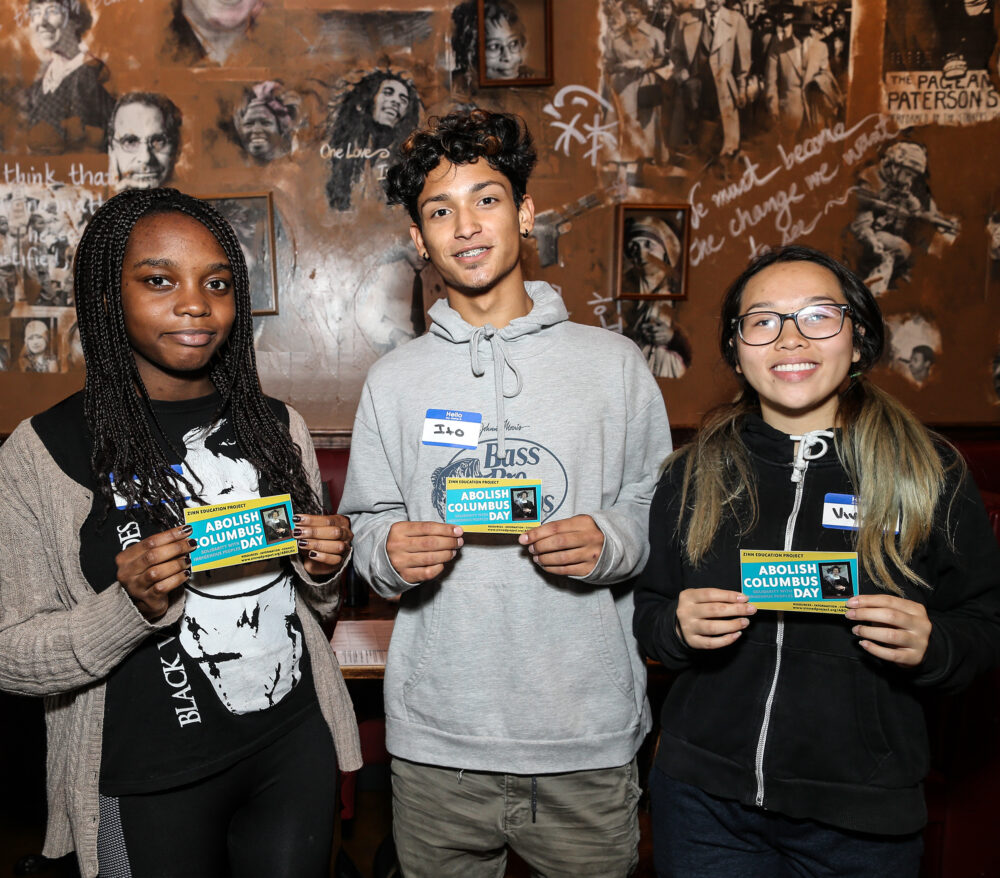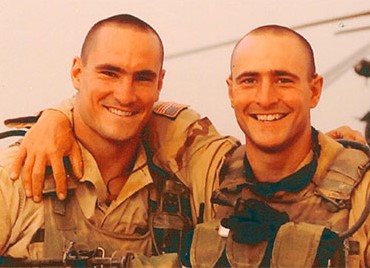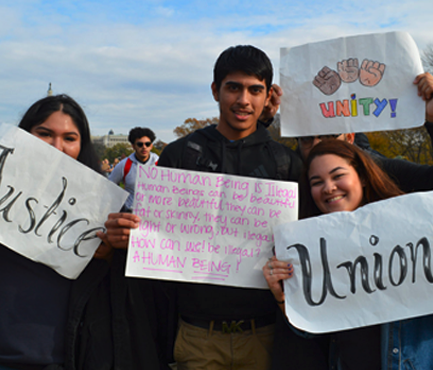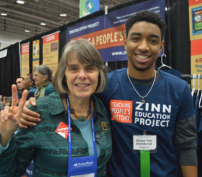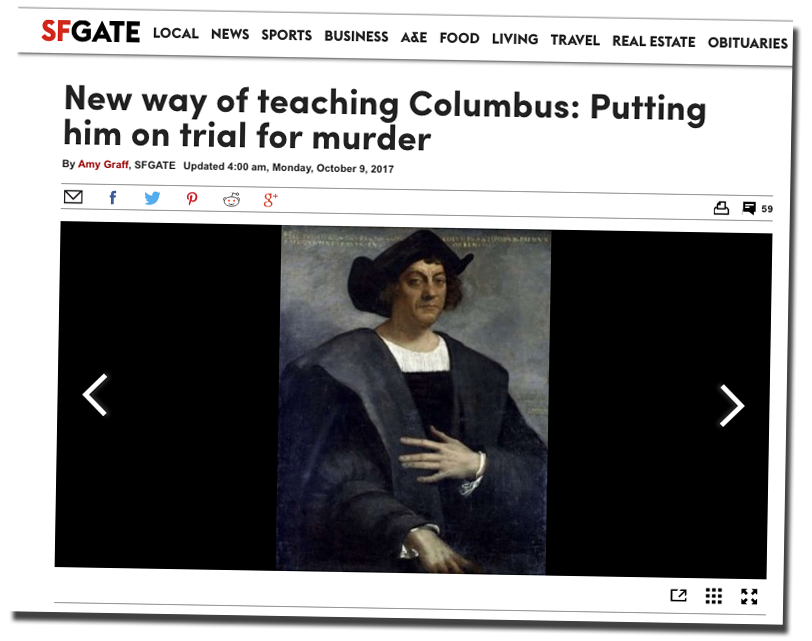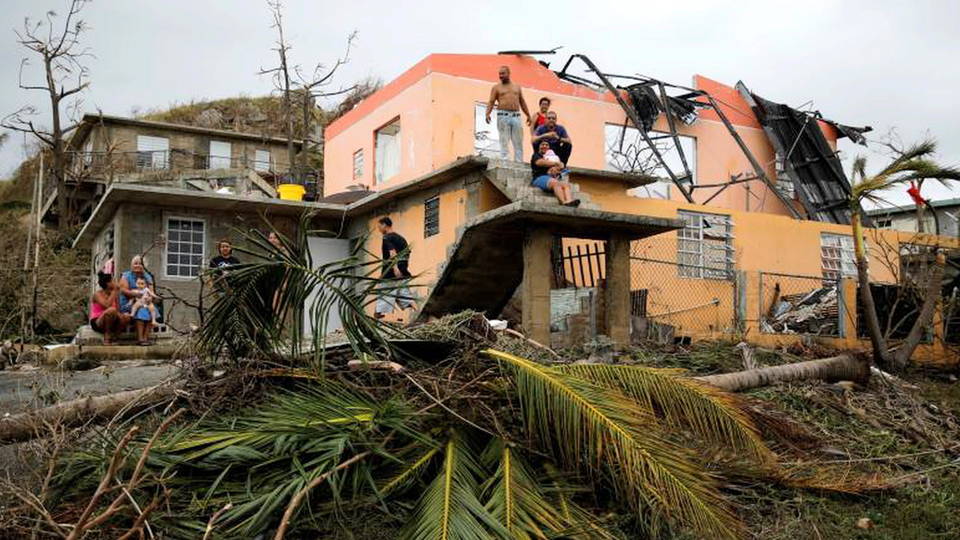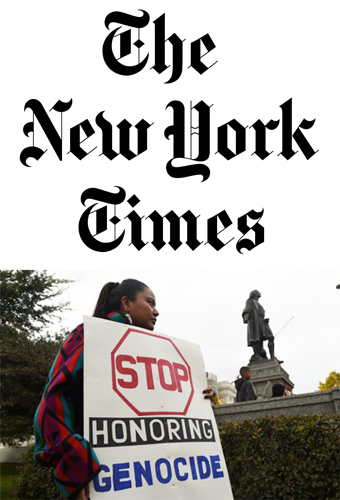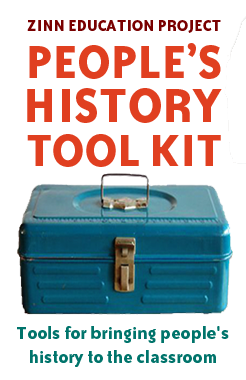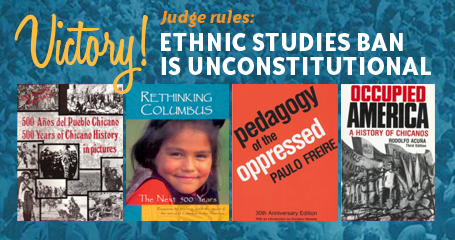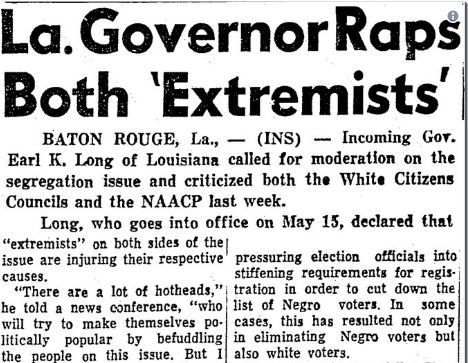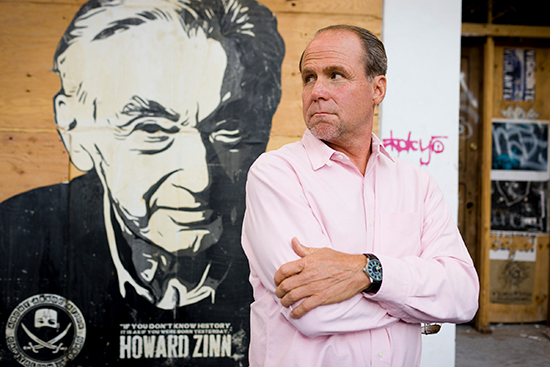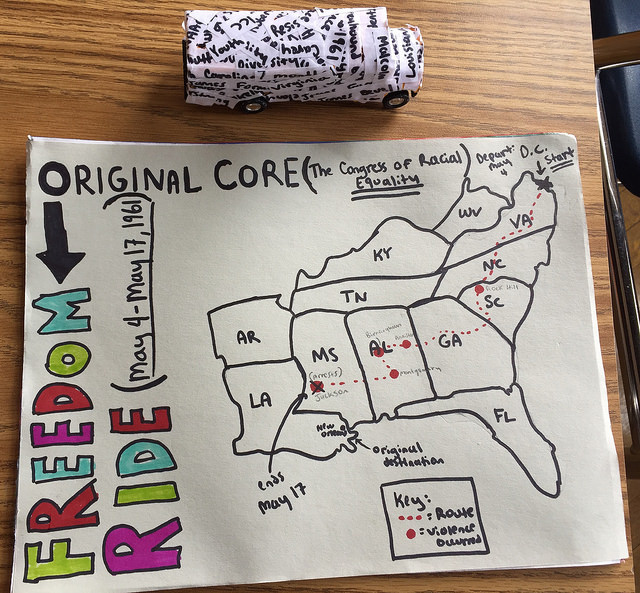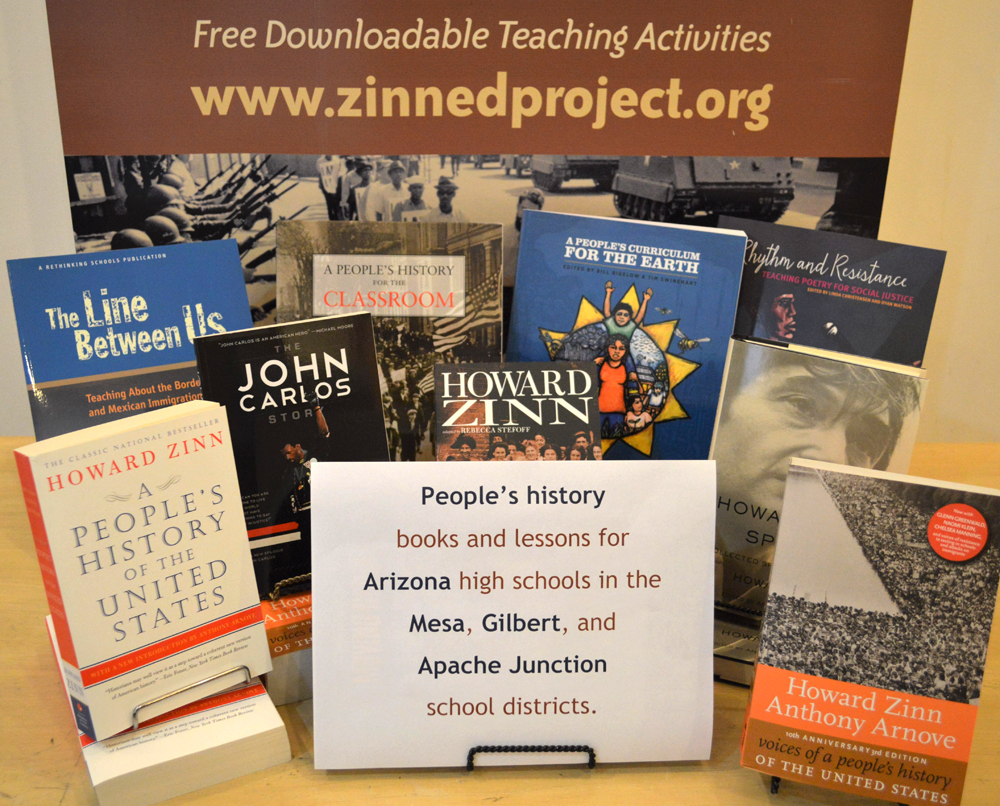On February 19, the NPR 1A radio show addressed the question of “How Do You Teach Slavery?” with Adam Sanchez, Zinn Education Project curriculum writer/teacher organizer.
Continue reading
How do you teach about housing discrimination in the North? Tell us, using excerpts from Richard Rothstein's articles or book, The Color of Law, or Linda Christensen's lesson, "Stealing Home: Eminent Domain, Urban Renewal, and the Loss of Community."
Continue reading
Colin Kaepernick asked for our help to get A People's History of the United States into the hands of young people at his Know Your Rights Camp.
Continue reading
The Southern Poverty Law Center (SPLC) issued a report which highlights how schools inadequately teach the history of enslavement in the United States.
Continue reading
Building on the 2016 Black Lives Matter day of action in Seattle, next week, February 5-9, educators across the country will take part in "Black Lives Matter at School Week."
Continue reading
Journalist Avis Thomas-Lester interviews teachers on how they address Reconstruction in the classroom on this 150th anniversary.
Continue reading
In November and December 2017, the Zinn Education Project hosted People’s History Trivia Nights in San Francisco and Washington, D.C., raising more than $4,300 for our work in 2018. At both events, everyone thoroughly enjoyed themselves while learning non-trivial people’s history.
Continue reading
In 2017, we hired our first full-time organizer to offer people’s history workshops for teachers (with a focus on the Reconstruction era) and to write lessons and articles.
This fall we offered workshops in five cities to help teachers better use our people's history resources and to knit together face-to-face network of social justice teachers. Now we need your support to continue this work.
Continue reading
For almost 10 years, the Zinn Education Project (ZEP) has offered teachers the resources — and encouragement — to “teach outside the textbook.” In these times, our work to equip young people with critical thinking skills has never been more important.
Continue reading
This year a team of educators, authors, and activists joined the Zinn Education Project to help with outreach on #GivingTuesday.
Continue reading
On Monday, The Washington Post columnist Courtland Milloy spoke with students and teachers in D.C. who are studying Native American history with lessons from the Zinn Education Project.
Continue reading
For Veterans Day in 2017, the Koch Brothers funded Bill of Rights Institute released a lesson for schools called, "Pat Tillman and Self Sacrifice: A Different Direction." The lesson exploits the memory of NFL player Tillman, much as the U.S. government did soon after he was killed in Afghanistan on April 22, 2004.
Continue reading
What do we want the world to look like when today's high school students graduate? What do students need to learn to become engaged citizens changing their communities and the world for the better? This past year has revealed starkly different possible futures.
Continue reading
By Adam Sanchez
Earlier this week, Trump’s chief of staff, John Kelly, stated on Fox News that Confederate General Robert E. Lee was an “honorable man” who fought “for his state” and that “the lack of an ability to compromise . . . on both sides" led to the Civil War.
Continue reading
The Zinn Education Project had a booth at the National Council for the Social Studies Conference (NCSS) on Nov. 17-18 and at the Howard Zinn Book Fair, Nov. 19. Both events were in the Bay Area.
Continue reading
By Amy Graff, SFGATE
For decades, every American kid in a schoolyard has known Christopher Columbus as the Italian explorer who "in 1492, sailed the ocean blue." But that little ditty is being phased out faster than you can name the explorer's three ships.
SF Gate
Continue reading
The climate crisis will not announce itself with one giant catastrophic event. No. It will build, as it has this past month, with hurricanes, destroyed homes, flooding, polluted water and air, power outages, wildfires, droughts, and extreme heat. Nor will the effects of the climate crisis be distributed equally throughout the world.
Continue reading
Bill Bigelow, Rethinking Schools curriculum editor and Zinn Education Project co-director, wrote a letter to the editor of The New York Times in response to their August 26, 2017, article about statues and Columbus. The following letter was published on September 3, 2017.
Continue reading
As the school year gets underway, we share this tool kit to help you bring people’s history to the classroom. Resources include popular lessons, articles, recommended reading, education news, campaigns, and more!
Continue reading
In 2010, state lawmakers in Arizona passed legislation that banned courses that “promote resentment toward a race or class of people.” But the legislation was, in reality, specifically targeting a Mexican American Studies program that started decades ago after Black and Latino students filed a desegregation lawsuit.
Continue reading
In light of President Trump's comments about “both sides” being to blame for the violence during the white supremacist, Nazi rally in Charlottesville, VA, this past weekend, Kevin M. Kruse, Princeton history professor and author of White Flight: Atlanta and the Making of Modern Conservatism, shared examples in his Twitter feed about the use of false equivalencies in history.
Continue reading
The Summer 2017 issue of Bostonia, the Boston University alumni magazine, features a profile of Zinn Education Project co-founder William Holtzman and the recent book drive undertaken in response to a proposed Zinn book ban in Arkansas.
Continue reading
Imagine how we can transform the teaching of history by knitting together our ZEP network and provide them with even more extensive people's history resources. Resources that can help students question, but also can inspire and empower. To realize this vision, we'd like your help.
Continue reading
We saw the sculpture above on Twitter posted by high school teacher Hayley Breden in Denver, Colorado. It was one of more than a dozen inspiring and moving examples of her 11th and 12th graders’ end of the year assignments for an elective course on the Holocaust and other genocides.
Continue reading
Howard Johnson was angry when he read about racist taunts at a basketball game at Red Mountain High School in Mesa, Arizona, in early February. But he was not sure what he could do to help students learn to treat each other with respect until he read about the Howard Zinn book drive in Arkansas.
Continue reading

